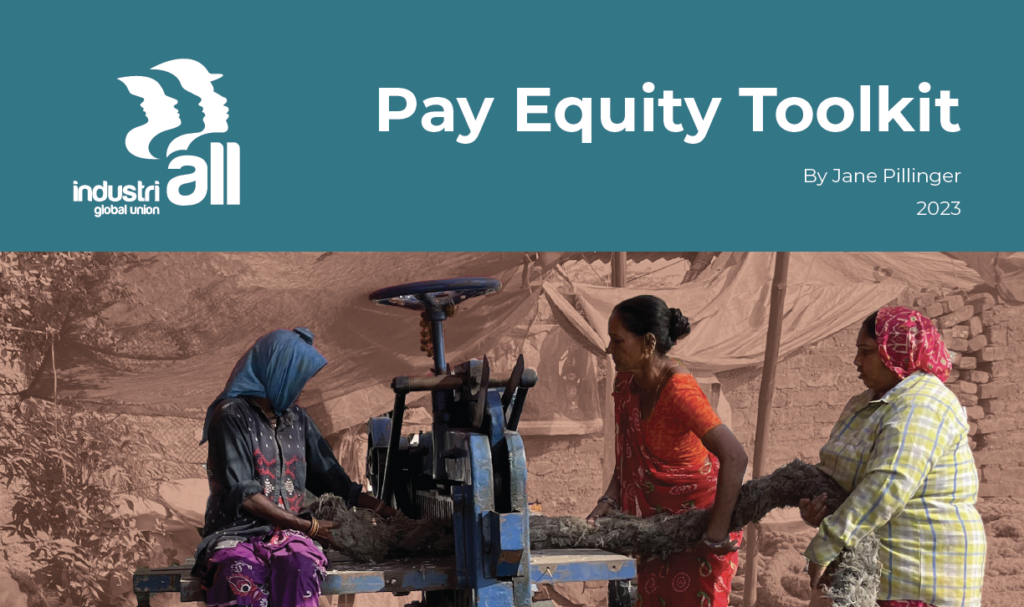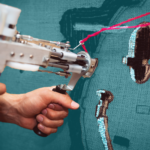17 September, 2023IndustriALL Global Union has launched its Pay Equity Toolkit, developed to support trade unions in bargaining for pay equity.
| Guía práctica sobre igualdad salarial (SPANISH) | Ücret Eşitliği Araç Kiti (TURKISH) | Boite a outils sur l'équité salariale (FRENCH) COMING SOON | |
Globally women are paid around 20 per cent less than men (ILO, 2022). The gender pay gap continues to persist, even though many countries have passed equal pay legislation and have also ratified the ILO Equal Remuneration Convention, 1951, No. 100 (which has a 93 per cent ratification rate).
Jane Pillinger (PhD) is the author of the Pay Equity Toolkit. She is a global expert on pay equity and gender-based violence at work and has been working with trade unions on gender equality for the last 35 years.
Pillinger summarizes in five steps how trade unions can work to close the gender pay gap:
- Raise awareness about pay inequalities between women and men, the causes of the gender pay gap and why it’s a key trade union issue.
- Address the structural causes of the gender pay gap, such as women’s burden of care responsibilities and the critical issue of the undervaluing of women’s work and skills.
- We need pay transparency. Unions can’t bargain on the gender pay gap if we don’t have data. Unions must seek data about the gender pay gap and build negotiating strategies around it.
- Address the issue for low paid workers, in the informal economy by building strategies around living minimum wages both in the law and in negotiation strategies with employers and public authorities. And for informal workers to build their rights to social protection and recognition for the work that they do.
- Find tools and structures to bring the gender pay gap into core trade union bargaining, rather than it being a sideline of a gender equality issue, it should come into the center of pay bargaining for example, an important strategy in the future for trade unions.
“The decision to develop this gender pay gap toolkit comes from the many discussions in our women’s committee.
We realize that there is still a misunderstanding when it comes to demanding equal pay for equal work and equal pay for jobs of equal value which the toolkit addresses outstandingly. We encourage our affiliate to use this toolkit to assist them in their efforts to close the pay gap,”
says Christine Olivier, IndustriALL assistant general secretary.




